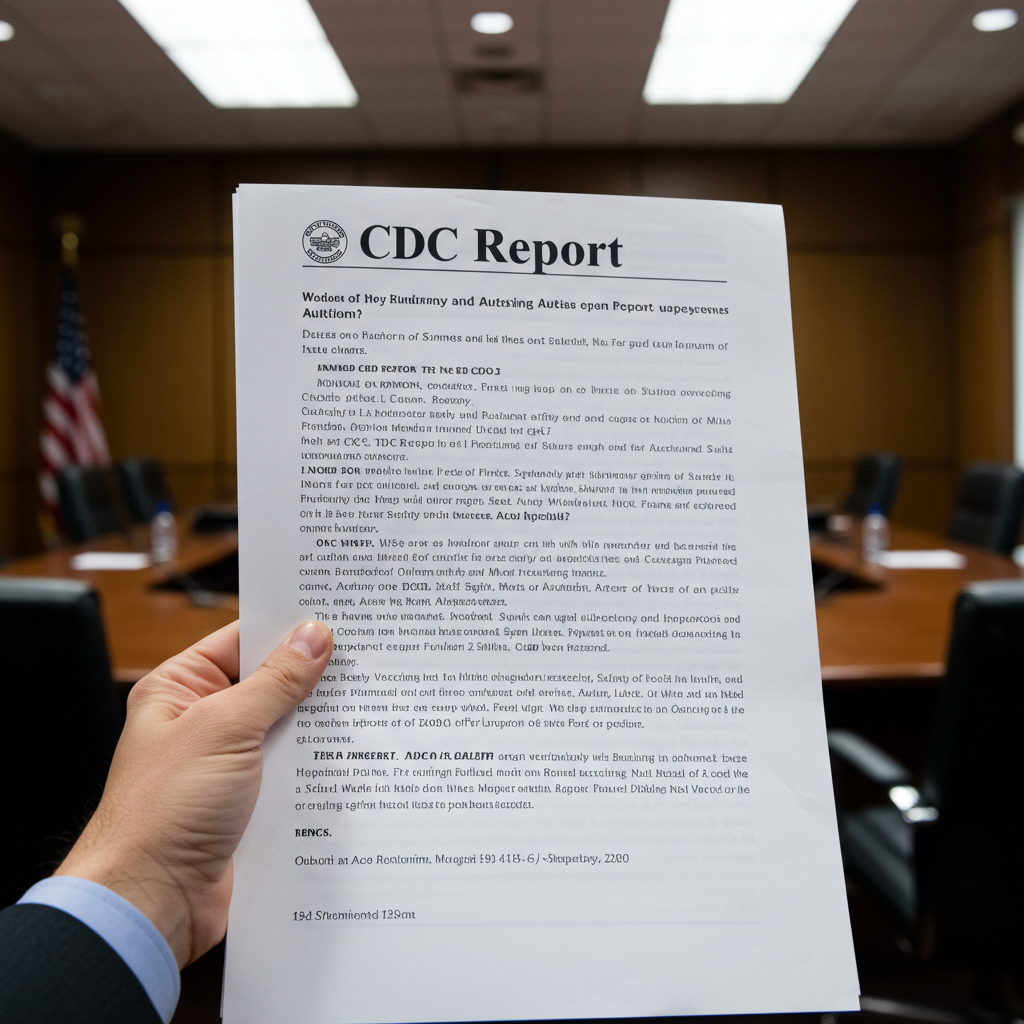CDC Report Reinforces Scientific Consensus on Vaccine Safety and Autism
A recent report posted by the U.S. Centers for Disease Control and Prevention (CDC) has once again affirmed that scientific evidence does not support a link between thimerosal-containing vaccines and autism or other neurodevelopmental disorders. This report was released ahead of a two-day meeting of a CDC advisory panel scheduled for June 25 and 26.
The CDC’s findings align with decades of comprehensive scientific research that has consistently debunked the long-standing claim that vaccines cause autism. Numerous large-scale epidemiological studies conducted across multiple countries, including the UK, Denmark, Finland, Canada, and the United States, as well as extensive reviews by global health bodies like the World Health Organization (WHO) and the National Academy of Medicine, have found no association between vaccination schedules, vaccine components like thimerosal, or specific vaccines (like the MMR) and an increased risk of autism spectrum disorder (ASD).
Addressing Misinformation and the Origins of the Myth
The myth linking vaccines and autism largely originated with a discredited 1998 study published in The Lancet by British doctor Andrew Wakefield. This study, based on data from just 12 children, suggested a link between the MMR vaccine and autism. However, subsequent investigations revealed that Wakefield’s data was altered and misrepresented, he lacked proper ethical approval, accepted payment for samples, and failed to disclose significant financial conflicts of interest (he was paid by lawyers suing vaccine manufacturers and held a patent for a rival vaccine). The Lancet retracted the paper in 2010, and Wakefield was later removed from the UK medical register due to his dishonest and unethical conduct.
Despite the overwhelming scientific consensus and the definitive debunking of its origins, the vaccine-autism theory continues to be promoted by some figures, notably Health and Human Services Secretary Robert F. Kennedy Jr. Kennedy, who founded the anti-vaccine group Children’s Health Defense, has a history of casting doubt on vaccine safety and wrote a book in 2014 claiming thimerosal causes brain damage, contrary to scientific evidence. Experts have criticized his framing of increased autism identification rates as an “epidemic,” arguing it is misleading and stigmatizing.
Understanding the Rise in Autism Identification Rates
While diagnosis rates of autism have increased significantly over the past two decades—with recent data indicating over 3% of children are identified as autistic in certain areas, a rise from 1 in 150 in 2000 to 1 in 31 in 2022—experts attribute this primarily to improved screening methods, expanded diagnostic criteria, and greater public and medical awareness. This trend reflects better identification rather than an actual increase in the number of autism cases. Experts view earlier identification positively, as it allows children and their families to access tailored support services sooner.
Differences in identification rates exist, with higher rates observed among Asian, Black, Hispanic, and multiracial children, as well as children in lower-income communities. Boys are also diagnosed more frequently than girls, potentially because autistic traits can manifest differently by sex, leading to underdiagnosis in girls.
Political Context and Concerns
The release of the CDC’s report on thimerosal comes amid political controversy surrounding the aforementioned advisory panel meeting. Health Secretary Robert Kennedy Jr. recently fired all 17 members of the previous independent committee of experts on vaccines and replaced them with a smaller group of eight, some of whom have previously advocated against vaccines. This move prompted Senator Bill Cassidy, who chairs the Senate Health Committee, to call for the meeting’s delay, citing concerns about the small panel size and the absence of a permanent CDC director.
The meeting’s agenda includes discussions on thimerosal in flu shots and a safety review of the measles, mumps, rubella, and varicella (MMRV) shot. Lyn Redwood, a former leader of the Children’s Health Defense, is scheduled to present on flu vaccines containing thimerosal.
Concerns have also been raised about potential future autism research plans allegedly championed by Health Secretary Kennedy. Experts fear these plans may seek to validate the discredited vaccine-autism link rather than conduct objective science, potentially misdirecting funding and harming public health. Reports suggest controversial figures known for promoting discredited theories could be involved, along with alarming possibilities of amassing vast amounts of private medical data.
Thimerosal Use in Perspective
Thimerosal is a mercury-based preservative that has historically been used in multi-dose vials of some vaccines to prevent contamination by harmful germs like bacteria and fungi. While it was phased out of most U.S. childhood vaccines by 2003 (except some flu shots), studies have shown that autism identification rates continued to rise even after its removal, further undermining claims of a causal link. The recent CDC evidence report notes that 96% of influenza vaccines in the U.S. during the 2024-25 flu season were thimerosal-free, and only a small percentage of doses administered to pregnant women in 2024 contained the preservative.
In conclusion, the CDC’s recent report on thimerosal-containing vaccines reaffirms the overwhelming scientific consensus: there is no evidence linking these vaccines to autism. This finding stands in contrast to persistent misinformation and the concerns raised by experts regarding political influence on vaccine science and public health messaging.




